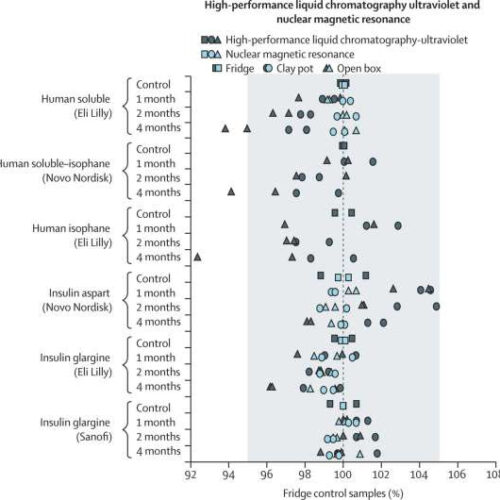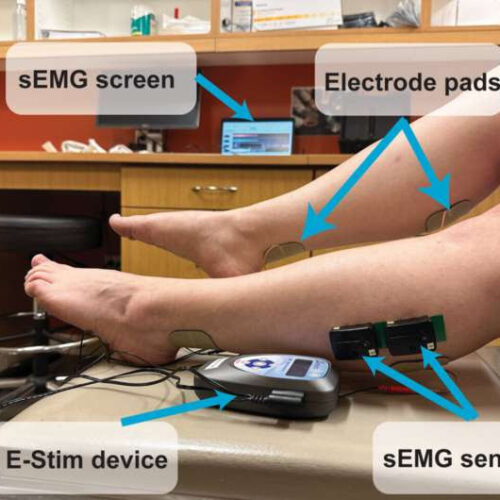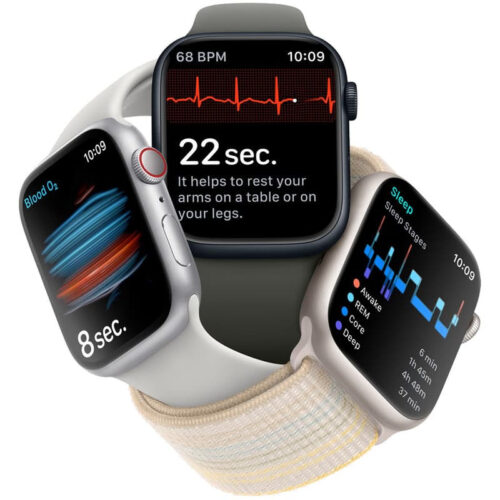by Swedish Research Council Relative potency and total concentration of insulins at each timepoint Relative potency measured by high-performance liquid chromatography-ultraviolet (shaded in black), and relative concentration measured by nuclear magnetic resonance (shaded in blue), of the control insulins after storage in refrigerator (squares), and insulins stored in clay pots (circles) or boxes (triangles) for 1,...
New Guidelines for Cannabis in Chronic Pain Management Released
Liz Scherer April 06, 2023 New clinical practice guidelines for cannabis in chronic pain management have been released. Dr Alan Bell Developed by a group of Canadian researchers, clinicians, and patients the guidelines note that cannabinoid-based medicines (CBM) may help clinicians offer an effective, less addictive, alternative to opioids in patients with chronic noncancer pain and comorbid conditions. “We don’t recommend using CBM...
Misuse of Adderall promotes stigma and mistrust for patients who need it, says researcher
by Habibeh Khoshbouei, The Conversation Credit: Unsplash/CC0 Public Domain The nationwide shortages of Adderall that began in fall 2022 have brought renewed attention to the beleaguered drug, which is used to treat attention-deficit/hyperactivity disorder and narcolepsy. Adderall became a go-to drug for ADHD over the past two decades but quickly came under fire because of overprescription and misuse. In some cases, people who do not...
Electrical stimulation found to revitalize muscle perfusion caused by long COVID
by Aaron Nieto, Baylor College of Medicine Study setup: electrical stimulation device, plugs and pads, and surface electromyography sensors. Participants received electrical stimulation through electrode adhesive pads placed on both proximal and distal gastrocnemius muscles using a bioelectric stimulation technology® (BEST) micro-current platform (Tennant Biomodulator®). E-Stim was active in the intervention group and nonfunctional in the...
Non-biological factors and social determinants of health important in women’s CVD risk assessment
by American Heart Association Credit: CC0 Public Domain Non-biological factors and social determinants of health are important to include in CVD risk assessment for women, particularly for women of diverse races and ethnicities other than white, according to a new American Heart Association scientific statement published today in Circulation, the Association’s flagship, peer-reviewed journal. “Risk assessment is...
More evidence that smartwatches can detect and predict heart issues
By Loz Blain April 04, 2023 ECG-equipped smartwatches are proving very useful in diagnosing and predicting a range of heart conditions Apple A good smartwatch might be your best friend if you’re at risk of various heart conditions. Many not only track heart rate, but can also take electrocardiogram (ECG) readings, and evidence is building...
Term Paper Writing Help – Finding a Writer Who Can Provide You Better Term Papers
If you are unsure as to how to start selecting a term paper writing service or if you can get it done all on your own, then you should consider reading tips and techniques that will help you make the right decision. In particular, you have to be able to find one which has an...
Scientists, going on a bear hunt, find a potential way to treat deadly blood clots
By Jason Mast April 13, 2023 Reprints Hibernating bears in Sweden have become enticing research subjects. COURTESY OLE FRØBERT Like many cardiologists, Manuela Thienel spends most days in the chlorinated, temperature-controlled halls of a large hospital. But one week in February 2019, her work brought her to a snowy Swedish forest, where she stood shuddering...
A Hidden Threat Looming Behind Antibiotic Resistance Is Now Emerging
14 April 2023 By MEGAN KELLER, THE CONVERSATION Tolerant bacteria are dormant until an antibiotic threat has passed, then reemerge to conduct business as usual. (Christoph Burgstedt/Science Photo Library/Getty Images) Have you ever had a nasty infection that just won’t seem to go away? Or a runny nose that keeps coming back? You may have been...
MIT scientists discover ‘remarkable’ new way to reverse Alzheimer’s — as previous breakthrough drug found to slow disease under fire after causing death of trial participant
By CAITLIN TILLEY, HEALTH REPORTER FOR DAILYMAIL.COM UPDATED: 14:24 EDT, 14 April 2023 A new way to reverse Alzheimer’s has been discovered by scientists at the Massachusetts Institute of Technology (MIT) — a major breakthrough with ‘dramatic’ results. The researchers used a peptide, or string of amino acids, to interfere with an enzyme that is typically overactive in the brains of people with...








